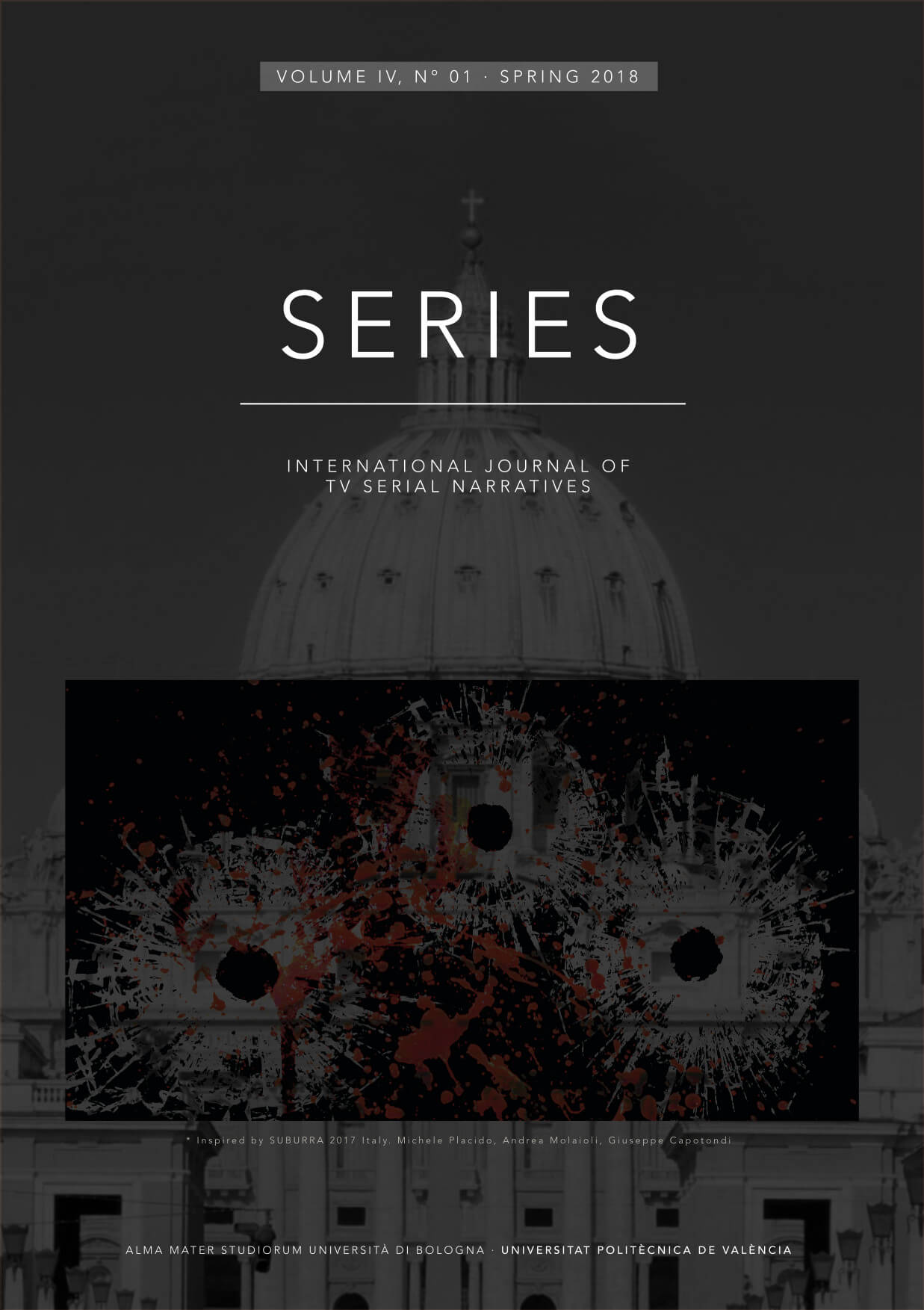Going Native: Long-Running Television Serials in the UK
DOI:
https://doi.org/10.6092/issn.2421-454X/8396Keywords:
Soap opera, minority language, Welsh, Gaelic, ScotsAbstract
This article examines in detail the development of the long-running serial in the UK, from its beginnings on radio in the 1940s, through the move to television in the mid 1950s and then up to the present day. It pays particular attention to language use throughout this period, focusing on the move from Standard English to a wide range of regional dialects during the four decades when these serials were at the height of their popularity, routinely dominating the television ratings. It then examines the development of long-form serials in languages other than English, firstly Welsh from the mid 1970s on, and then Gaelic intermittently from the early 1990s to the present day, and finally Scots, a highly minoritised Germanic language spoken mostly in the Scottish Lowlands. It compares both the current health and the future prospects of Gaelic and Scots with a particular focus on the challenges faced by both. Additional insights into the particular case of Gaelic are provided via interviews with a number of stakeholders.References
Barry, Michael (1992). From the Palace to the Grove. London: Royal Television Society.
Black, Jeremy (2013). “Great Britain: The Confected Nation State.” In Histories of Nations: How Their Identities were Forged, edited by Peter Furtado, 166-73. London: Thames and Hudson.
Bourdieu, Pierre (1992). Language and Symbolic Power. London: Polity Press.
Bourdon, Jérôme (2011). Du service public à la télé-réalité : Une histoire culturelle des télévisions européennes 1950-2010. Bry-sur-Marne: INA Editions.
Castelló, Enric and Hugh O’Donnell (2009). “Stateless fictions: Soap Opera in Scotland and Catalonia.” In The Nation on Screen, edited by Enric Castelló,
Alexander Dhoest and Hugh O’Donnell, 45-64. Newcastle upon Tyne: Cambridge Scholars Publishing.
Chalmers, Douglas and Mike Danson (2009). An Economic Impact Study of Gaelic arts and culture in Glasgow. Glasgow: An Lochran/GASDA.
Chapman, Joseph (2008). The Hero with a Thousand Faces. Novato: New World Library.
Chapman, Malcolm (1978). The Gaelic Vision in Scottish Culture. Kent: Croom Helm.
Dunn, David (2011). “A Tangle with the Isles: Contested Spaces in Scottish Television’s Gaelic Soap Opera Machair.” Paper presented at the Politics of Television Space conference, University of Leicester.
Dunn, David (2015). “At Some Distance from the Scottish Mainland: Urban Producers and Hebridean Islands.” In Affective Landscapes in Literature, Art and Everyday Life, edited by Christine Berberich, Neil Campbell and Robert Hudson, 33–45. Farnham: Ashgate.
Dyer, Richard, et al. . Coronation Street. London: BFI.
Eco, Umberto (1964). “La struttura del cattivo gusto.” In his Apocalittici e integrati, 54-130. Milan: Bompiani.
Eco, Umberto (1985). “L’innovazione nel seriale.” In his Sugli specchi e altri saggi, 125–46. Milan: Bompiani.
Elder, Michael (1990). 10 Years of Take the High Road. London: Boxtree.
Fairclough, Norman (2001). Language and Power. London: Longman. Second Edition.
Griffiths, Alison (1995). “National and Cultural Identity in a Welsh-Language Soap Opera.” In To be Continued… Soap Operas around the World, edited by Robert C. Allan, 81–97. London: Routledge.
Gubern, Ramón et al. (2000). Historia del cine español. Madrid: Cátedra.
HIE - Highlands and Islands Enterprise (2014). Ar Stòras Gàidhlig: The Economic and Social Value of Gaelic as an Asset. Inverness: HIE.
Holmes, Jeff (2009). This is Scotland: The First Fifty Years of Scottish Television. Glasgow: Cadeel Publishing.
Hornsby, Michael and Timofey Agarin (2012). “The End of Minority Languages? Europe’s Regional Languages in Perspective.” Journal on Ethnopolitics and Minority Issues in Europe 11(1): 88–116.
Jenkins, Henry, Sam Ford and Joshua Green (2013). Spreadable Media: Creating Value and Meaning in a Networked Culture. New York: New York University Press.
Jew, Linda (n/d). “Bannan: New Gaelic Drama for BBC Alba Could Go Global.” The Euro TV Place. http://theeurotvplace.com/2014/09/bannan-new-gaelic-drama-for-bbc-alba-could-go-global/ (last accessed 18-05-2018).
Kay, Billy (2006). Scots: The Mither Tongue. Edinburgh: Mainstreaming Publishsing.
Lundby, Knut and Knut-Arne Futsæter (1993). Flerkanalsamfunnet: fra monopol til mangfold. Oslo: Universitetsforlag.
MacDonald, Alan (2015). Conversation with Douglas Chalmers 5 December.
Macdonald, Rhoda (1993). “Renaissance v. Preservation.” Media Education Journal 14: 16.
McArthur, Colin (Ed.) (1982). Scotch Reels. London: BFI.
McArthur, Colin (2003). Brigadoon, Braveheart and the Scots: Distortions of Scotland in Hollywood Cinema. London: I. B. Tauris.
McCabe, Janet and Kim Akass (2013). From Telenovela to International Brand: Ugly Betty Goes Global. London: I. B. Tauris.
McLeod, Wilson (2002). “Language Planning as Regional Development: the Growth of the Gaelic Economy.” Scottish Affairs 38. Edinburgh: EUP
Mizumura, Minae (2017). The Fall of Language in the Age of English. New York: Columbia University Press.
Murdoch, Steve (1996). Language Politics in Scotland. Aberdeen: Aberdeen University Scots Leid Quorum.
O’Donnell, Hugh (1999). Good Times, Bad Times: Soap Operas and Society in Western Europe. London: Leicester University Press.
O’Donnell, Hugh (2007). “Nae bevvying, nae skiving: language and community in the Scottish soap opera.” In The media in Scotland, edited by Neil Blain and David Hutchison, 123-36. Edinburgh: EUP.
Ofcom (2014). Audience opinions – BBC ALBA, PSB Annual report http://stakeholders.ofcom.org.uk/binaries/broadcast/reviews-inverstigations/psb-review/psb3/Annex_3.iii-_Audience (last accessed 18-05-2018).
Peris, Àlvar (2016). “Imagining the Nation through Television Fiction: Memory, Proximity and Daily Life.” Debats. Journal on Culture, Power and Society 1: 29–43.
Propp, Vladimir (1968). Morphology of the Folktale. Austin: University of Texas Press.
Shohamy, Elana (2006). Language Policy. London: Routledge.
Sivulka, Juliann (1998). Soap, Sex, and Cigarettes: A Cultural History of American Advertising. Belmont: Wadsworth.
Smith, Jeremy J. (2000). “Scots.” In The Languages of Britain and Ireland, edited by Glanville Price, 159-70. London: Blackwell.
Spolsky, Bernard (2004). Language Policy. Cambridge: Cambridge University Press.
Welsh Language Act 1993 (1993). Chapter 38. http://www.legislation.gov.uk/ukpga/1993/38/contents (last accessed 18-05-2018).
West, Catriona and Alastair Graham (2011). Attitudes Towards the Gaelic Language. Scottish Government Social Research August 2011 http://www.scotland.gov.uk/Resource/Doc/355445/0120038.pdf (last accessed 18-05-2018).
Downloads
Published
How to Cite
Issue
Section
License
Copyright (c) 2018 Douglas Chalmers, Hugh O'Donell
Copyrights and publishing rights of all the texts on this journal belong to the respective authors without restrictions.
This journal is licensed under a Creative Commons Attribution 4.0 International License (full legal code).
See also our Open Access Policy.





